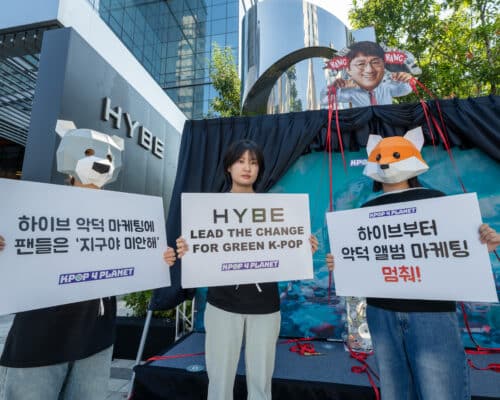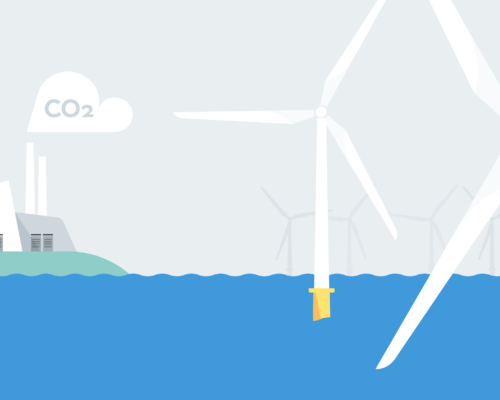Is the U.S. Losing Its Cleantech Edge?
Source: Wikipedia Commons
12 May 2025 – by Nithin Coca
Is the United States losing its cleantech edge? Passed in 2022, the Inflation Reduction Act, or the IRA, was the most ambitious piece of cleantech and climate legislation passed in the United States in recent memory. Despite it having many flaws, it created incentives to expand clean energy production through a wide variety of tax incentives and subsidies, and in a short time, had a major positive economic impact in the US and Asia.
Inflation Reduction Act Facing a Threat from The Trump Administration
Inflation Reduction Act is facing a threat from the anti-climate Trump administration, which, despite overwhelming evidence that the IRA created manufacturing jobs in many rural, conservative states, is looking to gut it as they prioritize fossil fuels and false solutions over climate and clean energy.
Ben Jealous, executive director of the Sierra Club said that the IRA “powering the industries and jobs for America to remain the global leader, and helping working families get by in tough economic times”. He added, “Any effort to rescind or repeal this important funding is an attack on the life and livelihoods of the American people.”
While this will be harmful for the US, which will only fall behind on the cleantech race globally, it will also hurt Asia’s energy transition as well.
“A Trump administration’s potential withdrawal… risks reducing the region’s access to energy transition-related finance,” said Putra Adhiguna, the managing director of Energy Shift Institute, an Asia-focused energy finance think tank.
The IRA’s Clean Technology Impact
The IRA offered up to USD 400 billion in tax credits, loans and subsidies to cleantech and other advanced manufacturing sectors. According to BloombergNEF, in just two years, over USD 300 billion was invested, and real progress was being made towards expanding solar, battery and electric vehicle production in the US.
Jealous added that the IRA had “created hundreds of thousands of jobs, is upgrading the country’s infrastructure, and brought about the rebirth of American manufacturing”.
According to the World Resources Institute, the IRA reduced electricity costs, was on track to create 9 million new cleantech jobs, and would result in cleaner air and better public health. It focused on using incentives to promote cleantech and was helping the US lower emissions.
“The IRA is still this nation’s biggest single step ever toward securing a healthy and livable planet for all. No other single piece of legislation has done more to address our climate goals and support the clean energy revolution already underway,” said Jealous.

Source: Wikimedia Commons
Asia and America’s Cleantech Innovation
One key goal of the IRA was to expand cleantech manufacturing and production in the US. As a part of that, it enabled foreign investment in these sectors. In fact, Asian businesses played a key role in the IRA, with numerous South Korean and Japanese companies, in particular, investing in projects that would expand cleantech supply chains and trade between the US and Asia.
Projects that took advantage of the IRA’s subsidies and tax credits include Toyota’s USD 14-billion EV battery plant in North Carolina, a USD 4 billion dollar battery plant investment by Panasonic in Kansas, Hyundai’s USD 7.6 billion electric vehicle production plant in Georgia, and several investments from South Korean battery companies.
“The IRA particularly boosted South Korean battery makers, with nearly half of eligible EVs using batteries from LG Energy Solution, SK On or Samsung SDI, driving a 27% rise in EV battery exports to the United States in 2023, making it South Korea’s top export market,” said Sheewon Min, a researcher at the East Asia Institute.
There are already adverse impacts due to the future uncertainty of the IRA, as, according to E&E News, companies have cancelled almost USD 8 billion in clean manufacturing projects so far in 2025, up from USD 1.6 billion over all of 2024. For countries like Japan, South Korea and Taiwan, which are looking to reduce dependency on China, the world’s leading manufacturer of cleantech but with widespread human rights concerns in its solar, battery and EV industries, it could be devastating.
“The absence of federal leadership will slow the pace of advancements, discourage private investments and leave the United States trailing behind global competitors,” said Kalina Gibson, a research assistant on International Climate Policy at the Center for American Progress.
Clean Energy Without the IRA
While the withdrawal of US leadership and the loss of the IRA will harm American cleantech manufacturing and likely limit Asian investment, the impact could be limited — but only if countries in the region start looking at alternatives, including expanding partnerships with other countries such as Europe or Australia, and enable more domestic cleantech investments.
This is, thankfully, already happening. Japan is looking to expand offshore wind partnerships with Europe, collaborating with leading manufacturers like the United Kingdom and Denmark and expanding supply chain links. South Korean investment in Indonesia’s battery and electric vehicle sector has surged to USD 4.46 billion. And Taiwan is planning to invest more than USD 12 billion as part of an ambitious plan to expand geothermal, wind and solar power to achieve net zero by 2050.
“Asia’s major investors have undeniably recognised that climate is going to move markets and reshape the region’s economic outlook,” said Rebecca Mikula Wright, CEO of the Asia Investor Group on Climate Change. “Commitments to triple renewable energy capacity and phase out fossil fuels, as proposed for COP28, are the kinds of policy signals that will attract Asian investors’ capital.”
If the Trump administration succeeds in gutting the IRA, it will be a major step back for Asia and the US, and make achieving rapid cleantech expansion and emissions reductions harder. Hopefully, Asian countries can continue to build on the progress made since 2022, and not let the withdrawal of the US harm its ability to continue to expand clean energy across the region.
by Nithin Coca
Nithin Coca covers climate, environment, and supply chains across Asia. He has been awarded fellowships from the Solutions Journalism Network, the Pulitzer Center, and the International Center for Journalists. His features have appeared in outlets like the Washington Post, Financial Times, Foreign Policy, The Diplomat, Foreign Affairs and more.
Read more








